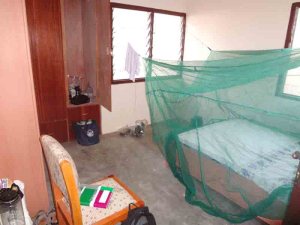Some of my previous blog posts seem to suggest that I’ve been on vacation for the past eight months. Contrary to popular belief, I’ve actually been working. Sometimes it’s just more exciting to write about the “fun” things that I’ve been experiencing. However, this post will be just business.
Background
A latrine artisan I’ve been working with in a neighboring community informed me that the kindergarten, primary, and junior high schools in the community don’t have toilet facilities. The students were defecating in the outskirts of the school, because they had no other place to go. Aside from the negative health implications, it also causes the students to be late for class and puts them at risk of snakebites. He pleaded with me to try to do something about it, so I applied for a small grant to build latrines for the school.
I was just informed today that the small grant I submitted over a month ago was approved! Now the actual work will begin when I have to monitor the construction of the school latrines and form health clubs in the school.
Other Projects In the Works
- I am currently writing a small grant to get shutters and doors for a school in my community. Having classrooms without doors and shutters causes many problems. You can read about the problem here, as it was featured in the news. My community seems really gung-ho about it, so I’m excited for the project.
- I’m looking into getting boreholes for some nearby communities. My community received piped water right before I arrived, but some of the neighboring communities don’t have the same luxury
- I agreed to teach ICT once a week at a junior high school in my community. Teaching is really challenging for me here. I have to speak very slow and clear for the students to have a chance of understanding my English. Also, students aren’t taught how to think critically at school; they “learn” through rote memorization. I’m a firm a believer that you aren’t learning unless you are thinking. Needless to say, I’m up for a challenge.
On top of all this I’ll be supporting my Local NGO, EDSAM, with all of their Ghana WASH activities and household latrine construction in the Volta Region. We are trying to finish building 200 latrines before we start building another phase of construction. I think I’ll be very busy in the foreseeable future.











